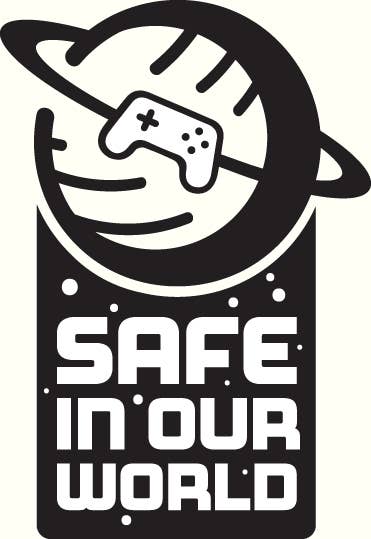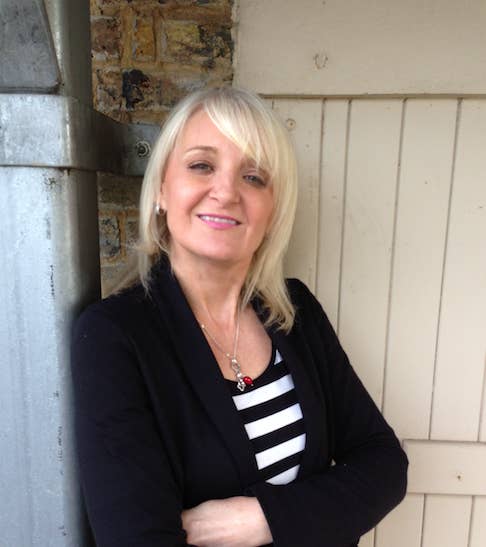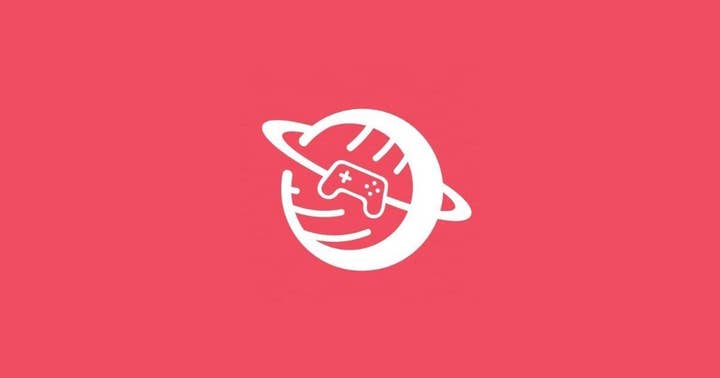Self-care tips for games community managers - and their bosses
Safe in Our World's Sarah Sorrell on supporting a CM's wellbeing and why mental health first aid training is a must
There are so many important roles within the industry, however, there is one role that seems to have the most endless remit of all: community management.
The genuine threat of work-related burnout is real, and this industrial injury needs preventive action.
In this short article I will share some practical advice for effectively supporting the mental health of your community managers and what your community managers can do to develop their own mental well-being skills.
Setting effective boundaries
Setting effective boundaries is twofold:
- As an organisation you need to support your community managers by clearly defining what their role is and what is expected of them.
Having this formalised is a good thing as it will protect everyone and make it clear when the remit is expanding and evolving. Defining internal expectations means you will be helping your community managers to model the same in their role with their communities.
- As a community manager you need to get good at knowing when to use the word 'no' and practice using it.
The better you become at knowing what is possible and not possible related to healthy, sustainable work the more you will be serving yourself, your organisation, and your community. Putting your mental well-being first means you will be able to show up for others in a way that is inspiring and realistic.
Providing training opportunities
The complex demands of the games industry means that making time for developing staff competencies can easily slide down the operational priority list.
Mental health training is so important for everyone in our industry and has the most significant impact on our teams as it focuses on growing awareness and building a positive culture of support, empathy, and treating others well. Within this environment, colleagues are then empowered to build resilience and recognise when others need support.
Managing online communities presents significant challenges that require a confident set of supportive peer skills
The community manager course we provide for instance gives the knowledge, confidence, and practical skills for delegates to be able to effectively set boundaries, provide non-clinical Mental Health Support and know how to take care of their own wellbeing, and the wellbeing of the community members they serve.
Managing online communities presents significant challenges that require a confident set of supportive peer skills and the need to know about the relevant professional resources available to them should they need to refer people onwards for support.
It is also important for community manager's to not suffer in silence with imposter syndrome and try to be superhumans in their roles. Everyone has training needs and areas where it is valuable to work with others to reflect on how we think, feel, and behave. This is the way to improve and get better at collaborating and developing as colleagues.
We have found some amazing training partners in Mind Fitness who have decades of games industry experience and have pioneered the unique RESPOND framework that Safe in Our World delivers as part of its Mental Health First Aid for Community Managers programme.
Creating psychologically safe work cultures
Most of us want to work in environments where we feel able to show up as our whole self and share our views and ideas in an open and honest way.
The evidence is that many organisations struggle to create and sustain a culture where people feel okay speaking truth to power -- disagreeing with the boss can still carry negative consequences. Senior leaders need to step up and take genuine responsibility for creating cultures that empower diversity of opinion and ideas.
Creating diverse teams is not enough; we must commit to supporting these teams through work practices that encourage constructive disagreement. This needs ongoing attention and organisational commitment to achieve. It also requires individuals to support the internal initiatives. Community managers, with their incredible experience of the diversity of perspectives present in their communities, are well placed to be pioneers in this area.

Finding balance in your life
The burnout epidemic is real and too many people have found their work habits are self-harming and unsustainable. Knowing when to stop, switch off and disengage is critical for everyone and especially important for community managers.
There will always be someone online, needing attention, and many community managers feel that doing a good job means being 24/7 available.
Your organisation needs to be overt in promoting healthy work practices by developing skills throughout the company to help people to recognise when the workload is too much.
Community managers who develop habits that support their mental well-being generally have hobbies, interests and friendships outside of the games industry. So, make this a part of your strategy. This range of people and things that you do that you have in your life, will really support your mental well-being, especially in times of adversity.
Developing self awareness
How are you feeling generally? What is going on for you with your closest friendships? How does your body feel today? What is causing you the most stress and anxiety? What is it you do, that you find helpful? Are you making healthy choices? Where are your thoughts causing you the most concern?
Do you notice any patterns in your thoughts, feelings, and behaviours?
By regularly checking in with yourself and honestly answering some of the above questions, you will significantly develop your self-awareness. Once you know what is going on for you at any given moment, it's much more likely that you will figure out what you need to do to support your mental well-being.
If it's helpful, keep a self-awareness journal so that you have evidence to look back on -- this helps to encourage your reflection.
It is important for community manager's to not suffer in silence with imposter syndrome and try to be superhumans in their roles
Welcoming imperfection
Making mistakes is a part of healthy living and it's a natural way for us to get better at stuff and learn what works and what doesn't work. Most of us have been through education systems that reward 'success' and discourage 'failure'; it's no surprise then, that most of us are averse to taking risks and do our best to avoid making mistakes.
This creates a perfectionist mindset that ultimately robs us of the joy of appreciating what we have done that is really great. We look for 'what's wrong?' before recognising 'what's right?'. Flip this and welcome 'what's wrong?' as the gateway to improvement. Learn to love failure because of the opportunities it suggests.
Connecting with others
Spending time with people that we love, like and enjoy being with is uplifting and rejuvenating. Being able to accept their support and talk about things that we find challenging or difficult makes the load seem lighter.
One of the five things that people at the end of life frequently say is that they wish they had spent more time with their friends and loved ones. Take action by making more time for the people that matter in your life. It will also help you to get good at keeping things in perspective as you start to incorporate what really matters into your routines.
Developing the habit of meeting new people through shared interests is also a lifelong habit worth acquiring; the scientific evidence tells us that it is one of the best things to do to avoid the consequences of cognitive decline as we age.
Community managers who develop habits that support their mental well-being generally have hobbies, interests and friendships outside of the games industry
Using mindfulness
The scientific evidence is also clear about mindfulness: there are significant health benefits from the daily practice of being aware that the present moment is all we have, and by using your senses, you can develop your ability to calm your mind and be more peaceful. Stress reduction and increased happiness? Sign me up!
Many of us are practising mindfulness without even being aware of it -- anything that requires us to be fully present with an awareness of our thoughts, feelings, bodily sensations, surrounding environments through a gentle and nurturing lens would qualify.
Once you start to explore mindfulness further there are even more helpful aspects: being non-judgmental, developing patience, practising acceptance, letting go of all that is unhelpful, welcoming trust and knowing how to let go of everything that is inconsequential.
Developing a beginner's mind means we stay open to things and do not close down the potential to learn and be influenced by others.
Practising self care
It is now proven that the trinity of healthy diet, regular exercise and good sleep are the foundations of good self-care. Like everything, developing helpful habits makes things easier to achieve and our brains like not having to think too much about stuff.

Once you have decided that you want to incorporate something into your schedule, you will need to be disciplined to make sure it becomes ingrained and habitual. Usually, two months is enough time for the new habit to become consistent.
During 'lockdown' the on and off two years that most of us experienced meant that we lost some of our healthy habits as a result of the enforced change to our routines. By being deliberate about what you want for yourself, you can start to include new routines that get you the outcomes you value and want.
As community managers it can be powerful for your communities to see you modelling healthy and uplifting patterns of behaviour. This includes how you set ground rules and boundaries for yourself and the wider community. And importantly, how you are seen to adhere to them.
Becoming attuned to your warning signs
Each one of us has a unique stress signature that we should become familiar with. Knowing when we are hungry, angry, lonely, or tired will act as cues for us to take action to remedy the situation for ourselves. Being able to talk with people about how we cope with stress and anxiety can be really helpful as it helps us realise we are not alone.
Many of us suffer in silence and even try to deny how we are feeling. This is part of the challenge of sustaining positive mental health: facing our feelings both good and bad and then taking positive action to improve things.
These are just a few of the ideas, practical tips, and insights that we have put together as part of our aim of supporting mental health and well-being for community managers.
We are massively encouraged by the reception that our Mental Health First Aid course has received from community managers globally. We are also looking forward to taking hundreds more community managers through the ideas and frameworks that will qualify them as First Aiders and give them the confidence to make a difference to their own, and others, mental health, and well-being.
If you're interested in applying for a space on the next round of free Mental Health First Aid for Community Manager courses, you can do so on this page.
Sarah Sorrell is charity manager at Safe In Our World. She has extensive experience in the charity sector for which she has worked for over 20 years as a fundraiser, marketeer and communicator. Sorrell has previously developed programs tackling some of the mental health issues young people face.
